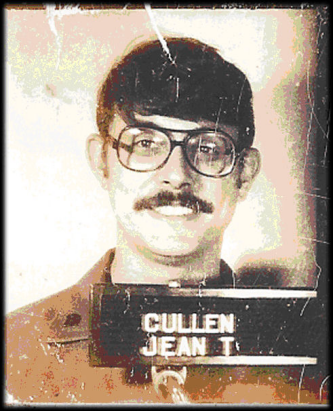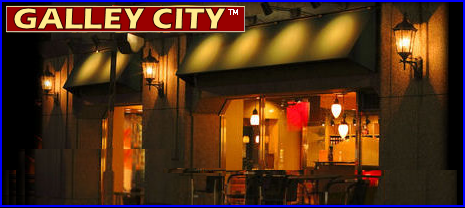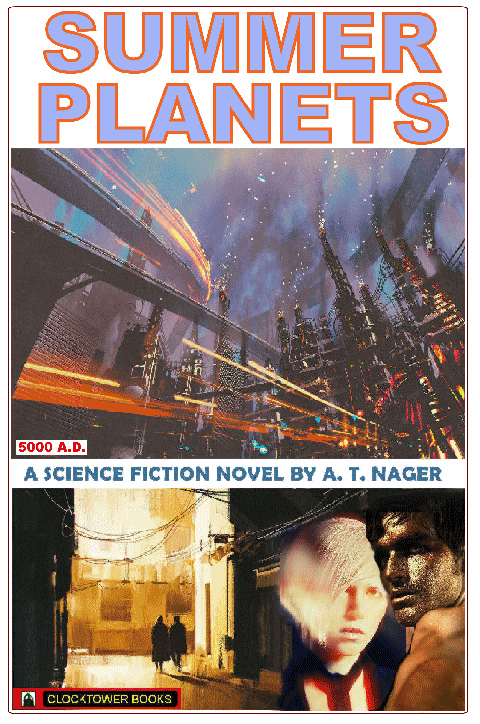|

|
= My First Thirty Years =
|
= Brief Summary Notes =
One to Ten: As a U.S. Army brat, I lived in several European countries during my first decade. My father was from New Haven, CT and my mother was from the BENELUX. I wrote my first poems at age seven, inspired above all by Psalms read in Catholic church services, plus all the pleasant children's literature available including Hergé's Tintin and some great comics (Mickey Mouse, a Robinson Crusoe series, and more). At the end of each school year, it was customary for the teacher to hand each student an autographed book. That period of my life contains some bright memories, and also some of my darkest, particularly after my parents separated for years. I spoke three other languages before at 10 I was to learn English. I read Mark Twain and Daniel Defoe in translation from English, and the great stories of English author Enid Blyton. I was an avid reader of U.S. children's mysteries as well. Only a few lines of my childhood poetry survive.
Ten to Eighteen: I became intoxicated with science fiction and historical fiction after we moved to New England. I'm not here to write my autobiography, but a sketch of my writing history, so I'll skip a lot of detail. I wrote my first little novel at age 11, which however became lost (more dark times) at about 13. I began seriously writing poetry as a sophomore in high school, which is where some of my first published poetry originated. At age 15, I started writing my first big novel. It's a SF novel on which I worked for years, writing draft after draft, until I finished it as a sophomore at the University of Connecticut, age 19. The original title was Cosmopolis: City of the Universe. By then I was already an avid student of history, not to mention literature. I belong to the last generation in which Latin was the common language of worship in the Catholic Church, and I studied five years of it (with a smattering of ancient Hellenic or Greek). All that and more formed a rich liquor (to quote Chaucer: "…bathed every veyne in swich licour…, referring to April showers and springtime in his Canterbury Tales of the 1300s) informing my creation of a mavelous but tragically imperiled galactic imperial city in the Year 5000 (our calendar, Old Calendar or O.C.) in which Jared Fallon, a young starfleet officer, must seek is fate, his love, and his mission in life.
During those years, as a teenager, I won a few writing awards state-wide, including one in the Hartford newspaper for an Informal Essay. I was a professional newsman at age 17, working three summers as a college interne reporter on The New Haven Journal-Courier. The lessons I learned there have stuck with me in my writing life, especially on the nonfiction side, along with my academic background (three college degrees by age 30). In addition to writing poetry and fiction, I began dabbling in publishing poetry magazines. I finished UConn with a B.A. in English. I remember one of the grad students in the department telling me, half joking and half serious, that studying literature was a mistake for me because it would 'ruin me as a writer.' I must admit I have seen a tendency to over-write in some of us, especially the MFA types who often disdain 'popular fiction.' I just loved all fiction, as long as it was well written and stirred my creative juices.
22-24 Starving Artist. I never owned a car until age 21, so I spent a lot of time hitch-hiking, back and forth from home and college (well over an hour's drive). Those long, cold nights on lonely highways did a lot to stimulate my imagination and emotions. Luckily I was never harmed. I lived dangerously. At 23 or so, I hitched across the United States from New England to Oregon, and south along the Pacific Coast to almost Mexico, to visit my parents who had moved to Chula Vista. They did give me plane frae to return to CT, rather than let me hitch-hike. During those years, I wrote several more novels.
Cats' Head, Pioneers, and more… I wrote a fun novel about two buddies in a Maine college town, in honor of my good friend Jim M. I also wrote another SF novel (Pioneers) that an editor at Ace wanted to buy but his boss nixed it, invoking the old Catch-22, saying that I was unpublished as of yet, and they'd be better off investing their money in a writer with a proven track record. The editor who wanted my novel, who soon dropped out and became a farmer in Pennsylvania, returning to the land in true hippie fashion, sent me the inter-office correspondence and his frustration. Andre Norton in the late 1990s accepted Pioneers for her High Hallack collection as an artifact of new directions in publishing.
Transition 24-25. At 23, after my epic journey to California, I sat in an empty power station (where I was employed as a security guard) in New Haven Harbor (another epic environment) and typed all the poems I had scribbled or typed over the years. I was in the habit of throwing them in a cardboard box. Now finally they all came together (some already a decade old, place and date of origin almost forgotten) in a sturdy thesis binder purchased at the Yale Co-Op. That collection of 245+ poems would travel with me for decades across two continents. I now had an old car, in which I drove across country to San Diego with my possessions in the trunk and back seat (as many books and papers as clothing). In San Diego, I wrote a number of SF short stories plus an SF novel that remains unpublished as of 2020. That novel will be the second installment in my Empire of Time series. In San Diego, age 25, I was not ready to settle down, and I wanted to see Europe again. Being an Army brat, and having lived there, I found the easiest path being to follow a natural instinct: I enlisted in the U.S. Army.
U.S. Army, Cold War Germany 25-31. I served for two amazing enlistments in West Germany. The first was one of the most delightful times of my life. The second was one of the darkest (bad marriage, and more). During
 those years, I traveled a lot. As a child, I had already been in Paris several times. Now I could hop into my orange VW bus (often with buddies) and tool down the Autobahn or autoroute to Paris, four hours away. Brussels, Heidelberg, Luxembourg, an endless list of interesting places to visit were a relatively short drive away. During those years, I wrote several novels, some still unpublished. I continued cooking poetry at a pretty good boil.I returned (ETS) to CONUS late 1980 to start a new life with its challenges and opportunities… I no longer wrote lyric poetry, but expanded my fiction writing to fill those Homeric sails with auspicious winds.
those years, I traveled a lot. As a child, I had already been in Paris several times. Now I could hop into my orange VW bus (often with buddies) and tool down the Autobahn or autoroute to Paris, four hours away. Brussels, Heidelberg, Luxembourg, an endless list of interesting places to visit were a relatively short drive away. During those years, I wrote several novels, some still unpublished. I continued cooking poetry at a pretty good boil.I returned (ETS) to CONUS late 1980 to start a new life with its challenges and opportunities… I no longer wrote lyric poetry, but expanded my fiction writing to fill those Homeric sails with auspicious winds.
|


|
During Army Years in West Germany 1975-1980
On Saint Ronan Street. As mentioned on other pages in this summary, I didn't know how good I had it. I was young, single, alone, lonely, homesick, and (like most G.I.s) felt I had made a terrible mistake. One of the most poignant products of that period was a romantic fantasy, a melancholy Updike-like love affair between a struggling young poet in a New England college down (New Haven/Yale University) and a beautiful, lonely, passionate, and neglected young faculty wife on the verge of divorce. The manuscript made the rounds in NYC but didn't quite connect, so it traveled thousands of miles with me, ultimately to join other dusty bundles slumbering in a suitcase in my garage.
That was in 1976, when I was 27. That's the famous burnout year when rock stars die, and when (Professor Uhlig said, quite correctly) lyric poets like Rilke pen their last lines and turn to prose or else join the military (as Rimbaud did around age 20) and go off to foreign adventures. I wrote the last of my poetry, and self-published a book (copyright 1980) titled Pauses: 64 Poems. I gave copies to my friends, and still have one or two in my library today. Around forty years later, when I finally published On Saint Ronan Street, I read the ms for the first time in decades and loved it. By coincidence, I had recently seen parts of the classic early 1960s French musical/love story The Umbrellas of Cherbourg. Now for some reason, even though I never saw the movie as a youth, the title haunted me. Being a poet, I found it evocative, romantic, compelling… and maybe there is a bit of Jungian synchronicity (chance, by other than supernatural mechanisms) in that. Umbrellas has a certain 'Gallic' melancholy, downbeat nature to it that would never fly with Anglo crowds (except as an oddity to be savored from 'romantic' France). I realized that my 27-something had that very same down, melancholy c'est la vie something about it (je ne sais quois). I realize this is supposed to be about my first thirty years as a writer, and what I am describing happened almost half a century later, but it's all connected and relevant. But first, another connection:
Cymbalist Poems & 27duet. In my late 60s, as I put to press, I remembered my huge poetry collection (now also in print under various titles). The hero of On Saint Ronan Street is a young 23ish poet (Jon Harney; and I suspect I hung that handle on him as a pun on 'horney'). I decided to 'give' him my poetry to submit to the troglodytes in New York City (part of his adventure) under his pen name of Charles Egeny (which I thought back in 1976 sounded Russian somehow, as it reminded me of Boris Pasternak and Vladmir Nabokov, among the Russian authors I admired while serving as a U.S. soldier in Cold War Germany, ironically). I thought it was a fitting way to bring my own poems out of mothballs. Since I had admired the Symbolist Poets as a college student, I decided to title the collection Cymbalist Poems (being ever one for the pun). I also saw fit to publish the novel and poetry collection together in a volume titled 27duet. But wait, that's not all…
Paris Affaire. One day in 2018 or so, it struck me: why not take the ms of On Saint Ronan Street, strip it down to an ASCII text file, and do globals, which is what I did. In one afternoon, there emerged yet another novel: Paris Affaire. I had fun with it, changing all the Yale background to Left Bank, rive gauche, Latin Quarter places. Jon Harney became Marc Fontbleu, his poetry alter-ego Charles Egeny became L&#eacute;opold Montbl&#eacute;, and his beautiful young faculty wife-lover became Emma Delors. Unlike the 1976 novel, this one has a far more upbeat, non-Gallic conclusion. That's all I will say. The 2018 novel is exactly the same as the 1976 novel, except that (a) everything is now Parisian and (b) well, the ending... very much upbeat. In fact, a footnote on that: (hint) the great love story has its crescendo before Notre Dame de Paris cathedral among thunderously pealing bells that rock the parvis outside the massive doors. Then, in April 2019, that magnificent church was ruined in a horrific fire. I briefly renamed my novel The Bells of Notre Dame, but have since reverted to Paris Affaire.
After 30: The Bright Side. In all, I have written about fifty books, including a massive poetry anthology and lots of nonfiction. Most of it is listed at the main List of this (Caffeine Books) website. A lot still awaits typing and publication. Some old manuscripts will never be published (just practice, as happens with most authors). I settled down in San Diego, where I have lived since 1980. Officially, San Diego was my Home of Record on joining the Army in 1975, so 2025 will be the half century mark. I'll continue my listing of books and their backgrounds (their biographies, not mine) on pages yet to come on this website. Thank you, and Happy Reading! (JTC)
|
|